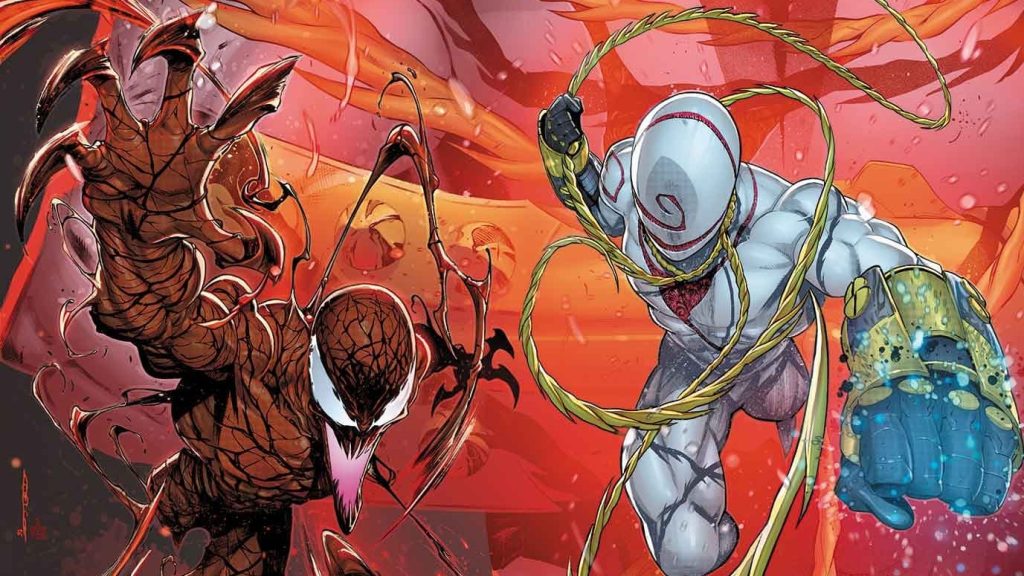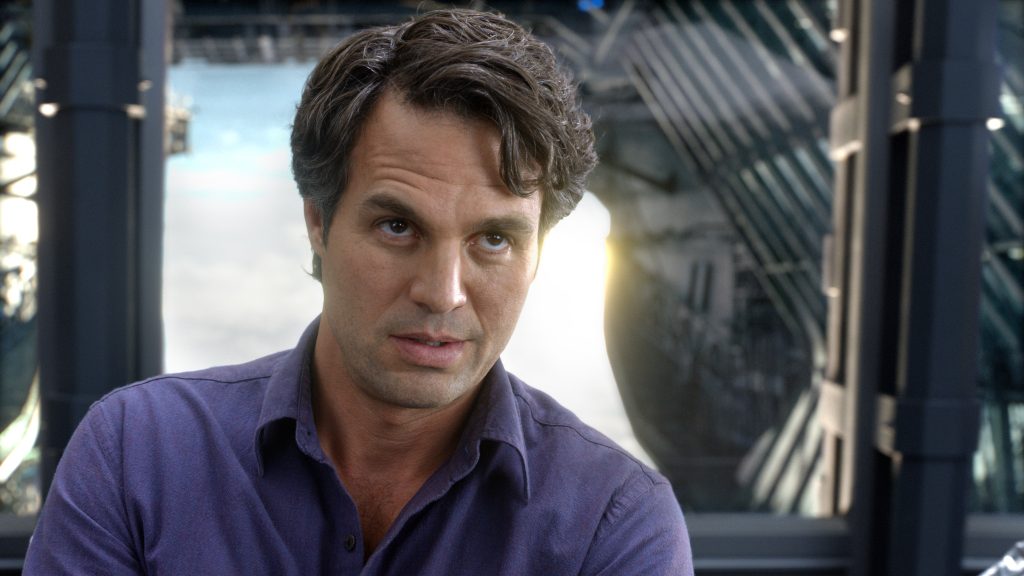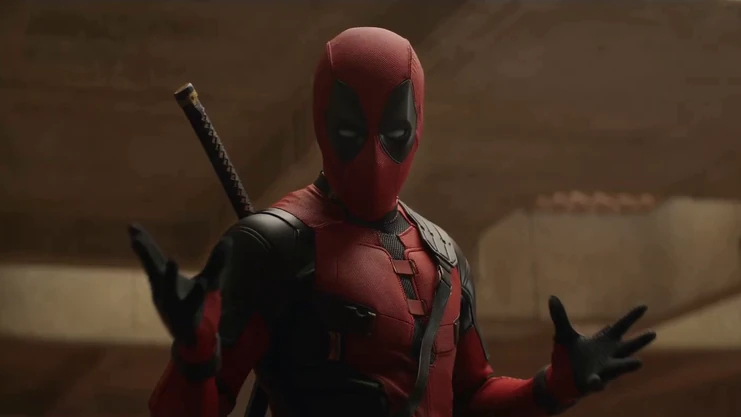Despite the MCU’s tremendous success in Hollywood, the source comics have faced challenges in capturing the same audience.
The MCU has become a phenomenally successful cinematic franchise, achieving multi-billion dollar hits. However, despite Marvel Comics’ IPs’ massive triumph on the big screen, audiences haven’t quite made the transition to the comic book side of the franchise.\
Marvel Comics has reigned supreme in the comic book industry since the Silver Age, boasting iconic characters brought to life by legendary creators like Stan Lee, Jack Kirby, Steve Ditko, and Jim Shooter. The 1990s witnessed Marvel’s initial successes on-screen through animated series like Spider-Man and X-Men, along with the Blade trilogy, which generated a new wave of devoted Marvel fans. However, the MCU has struggled to replicate the same level of immediate impact with comic book readers. Several factors, such as deviations from the source material and the high cost of comics, are making it challenging for Marvel to persuade moviegoers to explore the world of comics.\
How Marvel Comics Fumbles Box Office Opportunities
Despite the yearly billion-dollar successes of Marvel’s movies, their comic publishing schedule often fails to reflect this synergy. It’s apparent that some decisions within their comics seemingly ignore the ongoing movies. Instances like killing off Doctor Strange before “In the Multiverse of Madness,” revealing Captain America as HYDRA during “Civil War,” and transforming Jane Foster into Thor during the height of Chris Hemsworth’s MCU popularity are clear examples of this disconnect. Marvel Comics not only misses opportunities to capitalize on the MCU’s popularity but also contradicts both the movies and its own established history. This disparity has made it challenging for comic shop owners to entice potential new customers, who may find it difficult to reconcile the divergent narratives between the movies and the comics.
The debate surrounding whether comics should align more closely with movies remains a genuine point of discussion. DC Comics has demonstrated a more effective strategy in this regard, with a focus on releasing and reprinting character titles in sync with their movie counterparts. For instance, DC succeeded in shining a spotlight on Black Adam well in advance of his movie’s release, and they made Peacemaker a prominent figure in the Suicide Squad after John Cena’s casting. While both Marvel and DC struggle to attract moviegoers to their comics, DC’s efforts with better timing and payoff have been more noticeable. They have set a template on how a company can capitalize on other media without compromising the essence of their characters. Nonetheless, both companies continue to face challenges in mainstream marketing as they try to bridge the gap between movies and comics.
Adding to the challenges, Marvel’s increasing reliance on events and crossovers has created a barrier for new fans. The publisher previously boasted numerous standalone titles that catered to diverse interests. However, nowadays, the focus has shifted towards constant crossovers and events as a means to attract readers. The hope is that popular books will entice readers to explore less popular titles. Unfortunately, this approach may backfire, as it mainly caters to existing fans and can be overwhelming for newcomers. Many new readers are discouraged from starting their comic book journey with the financial commitment required for an entire summer event like Absolute Carnage.
Highlighting The Overlaps With The MCU
One of the significant challenges facing the comic book industry is the disconnect between their characters on screen and on the page. Moviegoers often associate certain characters strongly with the actors who portray them. For example, Tony Stark is synonymous with Robert Downey Jr., and Wolverine is inseparable from Hugh Jackman in the minds of many fans. Consequently, when these fans read the comic book versions of these heroes, they find them too different from what they are accustomed to seeing on screen. Marvel’s decision to launch the “All New, All Different Marvel” line of comics during the peak of the MCU added to the confusion. This era introduced lesser-known characters taking on classic roles and put the spotlight on B-list books. While this approach might have been fine on its own, it coincided with the height of the MCU’s popularity, leading to a disconnect between the movies and the comics that wasn’t ideal.
During the early-2000s, Marvel-based media made commendable efforts to be more faithful adaptations of comics compared to the MCU. Despite facing valid criticisms, the Fantastic Four movies, for instance, presented the best live-action portrayal of Doctor Doom to date. While some creative liberties were taken, such as Spider-Man’s organic web and Galactus being recast as a giant cloud monster, the overall depiction of most heroes remained true to the comics. This allowed for a relatively seamless transition from movies to comics, and the animated shows were even more faithful to the source material. Marvel has shown interest in collaborating with its films and shows, as seen with the X-Men Animated Series comic. However, this approach has been more of a small nostalgia callback rather than an ongoing and consistent strategy.
To better connect the comics with the successful formula of the MCU, Marvel should prioritize aspects that resonate with fans. Emphasizing relaunches, rebirths, and the return of classic creators on a character in conjunction with movie appearances would be a great starting point. Ensuring a smooth transition for new fans from the movies to the comics is crucial. Simplifying storylines and focusing on core characters, like Peter Parker in Spider-Man, can avoid overwhelming readers with a crowded narrative. Marvel has been open to exploring new phases and continuity levels, but it still hesitates to align more closely with the movies. Additionally, the publisher could attract readers by addressing perceived mistakes from the MCU, such as resolving the issues between Quill and Gamora. By implementing these strategies, Marvel can bridge the gap between its cinematic success and the comic book world.
Competing Media And Price Barriers
The comic book landscape has changed significantly since its heyday in the 1990s. Various factors, such as the rising popularity of manga, the dominance of video games in children’s leisure time, and the increased cost of current comics, have all contributed to a transformation in the market. Comics were once affordable and accessible entertainment for kids, but the dynamics have shifted. Nowadays, comics cater more to collectors and are considered a pricier medium, targeting adult audiences while potentially neglecting younger readers. This trend is even more evident in the pricing of collected editions, like Marvel’s Epic Collection line and new releases of trade paperbacks.
The dilemma becomes apparent when comic enthusiasts weigh their options between a 200-page manga volume priced at $9.99 and a 140-page Avengers volume at $16.99. The affordability of comics has changed drastically, leaving behind the days when kids could buy enough comics for the week for just $10. The once-accessible quarter bins have given way to dollar bins, and the majority of comics are now priced for collectors. Even standard first issues are now sold at $5.99 for just 24-32 pages. What was once a popular and affordable hobby has now become a niche interest primarily for collectors and speculators. Finding Marvel and DC Comics outside of comic stores and a few chain bookstores has become a challenge, with only a limited selection available. This pricing shift poses one of the industry’s most significant challenges.
Undoubtedly, the movies themselves could play a bigger role in promoting comics. Marvel’s comic issues are often filled with advertisements for other Marvel media, but the movies rarely reciprocate this acknowledgment. However, it’s not entirely due to ignorance. If movie studios are aware that the publisher is taking a divergent path, they might be hesitant to draw attention to it among mainstream fans. The publisher could take steps to engage with the studios and remind audiences that while the MCU adapts the comics, it is the publisher that creates them. Moreover, highlighting the vast number of stories that may not make it to the MCU due to their epic scale could also attract new readers. Emphasizing the breadth of content available in comics beyond the cinematic adaptations could be a promising strategy.
Strategic Publishing Doesn’t Have To Disrupt Canon
Achieving better synergy between the movies and comics doesn’t necessarily mean that the comics have to change to match the movies. Instead, Marvel Comics could adopt a more strategic approach. They could ensure that their titles reflect what’s currently popular in the MCU or provide fans with stories featuring beloved characters who may have died in the franchise, like Iron Man. Marvel’s extensive back catalog of comics is one of its most valuable assets in the movie-making process. Many of these comics are the source material for the movies we see on the big screen. Classics like Civil War, The Winter Soldier, Werewolf By Night, and Infinity Gauntlet have all been successfully adapted into mainstream hits through the MCU, not to mention the successful X-Men movies. By utilizing its vast collection of stories, Marvel Comics can continue engaging long-time readers and new audiences drawn in by the MCU.
The task of making Marvel’s comics division a household name again is not solely the publisher’s responsibility. Fans, creators, and industry leaders understand how movies can influence comic sales. While there are certain actions movie studios should take, it’s crucial to recognize that Marvel Comics also has the power to enhance their business. By strategically timing the release of new titles and making some comics more affordable and accessible, Marvel can effectively capitalize on the MCU’s success and attract more readers to their comic books. It’s a combined effort that can yield significant results.









